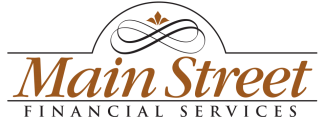1. What should we expect on our first visit?
We feel that it is important for you to get to know our office on the first visit. That would include meeting the people that work in our office and sitting down with one of the investment professionals; whether it is Nancy,Teresa, or Dave.
2. Is there anything we should bring with us to our visit?
It is important that you bring along your most recent statements from any investments, insurance products, and retirement accounts that you have, and last year's tax return. These items will give us a good start in determining where you are now financially.
3. How much does it cost for the initial visit?
There is no cost for the initial visit. After the initial visit, you should have a relatively good idea of whether our office is the type of office you want to do business with. If it is, then any fees or related costs will be disclosed prior to making any investment decisions.
4. Who should have Life Insurance?
Our office feels strongly that life insurance should be used to “protect what you can't afford to lose”. This simply means that if you can't afford to lose the income provided by a spouse or a business partner, then one of the ways to protect that income or asset is through life insurance.
5. Who should have Disability Insurance?
If you cannot afford to have a disability take you away from your job and/or work, then it would be a good idea to be protected with disability insurance.
6. Who should have Long Term Care Insurance?
This is the question that really is important for individuals or couples that have built up a nice “nest egg”. If you desire not to ever lose the assets you have built up, then there really is only one way to protect that, and that is through purchasing some type of long term care insurance policy.
7. Who should have a Funeral Trust?
We all know that at some point in time we will pass away. A funeral trust simply puts money away, which cannot be touched until after death. This money is “specifically” going to pay for final expenses.
8. My company has a Retirement Plan. Should I invest in it?
Although we are reluctant to give specific investment advice on a retirement plan, we will go so far as to say that if your company has a matching plan, it is very important that you get the matching dollars. For example, if your company has a 3% match, that means that if you put in 3%, the company puts in 3%, and that is essentially “free money”. It only makes sense to take advantage of that.
9. What is a Roth IRA?
A Roth IRA is simply the registration you would use to put money into a retirement account for yourself. Roth investments are after tax dollars. This means that you have already paid the taxes on the dollars you invest. In the Roth registration the money grows tax-free and eventually will come out, as long as you follow the rules, tax-free.
Distributions on earnings are tax-free after five years and age 59 1/2. Prior to age 59 1/2, a 10% federal penalty tax may apply.
10. What is a Traditional IRA?
A Traditional IRA is money that goes into a registration of an IRA as pre-tax dollars. These dollars grow tax-deferred and eventually will come out as a taxable withdrawal.
Withdrawals are subject to income tax and prior to age 59½, a 10% federal penalty may apply.
11. As a small business owner, how do I plan for my own and my employee's needs?
We believe the best solution for a small business is to open up some type of a retirement plan for their employees. This may include, but is not limited to, a Simple IRA, SEP, 401(k) or some other type of qualified retirement plan.
12. Can I transfer my accounts to your office?
For the most part, accounts can be transferred from one brokerage firm to another. Before you do, it is important that you feel comfortable and confident with the investment professional office that you are looking to transfer money to.
13. How much should I have in a Cash Reserve account?
The cash reserve account that you have may be made up of checking accounts, money market and savings accounts. This is your accessible dollars. The general rule of thumb is to have somewhere between three and six months living expenses in a cash reserve account.
14. How do you know what investment I should be in?
In our office,we ask a lot of questions to try to determine, through your answers, your parameters, goals and objectives. We also do an investment profile survey which helps us and you determine how aggressive or how conservative you need to be in your investment portfolio. With these tools and conversation,we believe we can ake sound financial decisions on which investments make the most sense for you.
15. Do we invest differently at different ages?
The simple answer is 'yes.' More important than ages would be your goals and objectives, and that is always determined when we have a face-to-face or over the phone conversation. We need to make sure that we understand your investment objective, and whether anything has changed in your life to make that investment objective or goal different.
16. How can I plan for my child's education?
There are a number of different programs that can be used for planning for educational needs. These would include, but are not limited to, 529 College Plans, Educational IRAs, Uniformed Transfer to Minor's Act (UTMA) and Uniformed Gift to Minor's Act (UGMA). By sitting down and going over what your objectives and goals are, we can determine what is the best method for you at this time.

